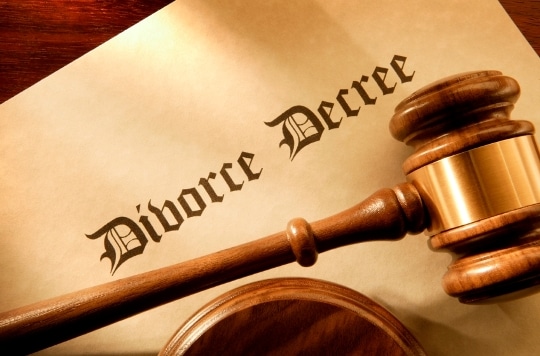Jasmine Birtles
Your money-making expert. Financial journalist, TV and radio personality.


So your minds are made up – you and your spouse have decided to separate. Brace yourself: the average cost of divorce is estimated to be £13,000 (and it’s not unusual for some separations to reach costs of up to £50,000). Yet if the divorce is amicable, high costs can be avoided. In fact the process can be completed for just a few hundred pounds by cutting out expensive solicitors and going for a DIY divorce.
DIY divorce is not for everyone. If the split is not amicable, or if there are any major disagreements over the division of assets, then the involvement of solicitors is inevitable.
There are many things to consider when getting divorced – even if the split is amicable there may still be disagreements that need to be resolved. Do you agree on what happens to the children and their access arrangements? What happens to your home? There may also be the issue of maintenance payments to sort out, in addition to deciding what happens to your current assets.
However, if the following points apply to you, conducting a DIY divorce is certainly feasible.
If this is your situation then a DIY divorce could save both you and your partner a large amount of money.
Many divorces don’t require either of you to appear in court, and can quite often be done entirely by post. You can get all the necessary forms from your local county court and fill them in yourself. It’s quite common for people to make mistakes when filling in these forms on their own, so we’ve gone through the basic process (and where to get hold of the main forms) below.
Alternatively, you can have the administrative process managed for you to a certain extent, by getting guidance from a company like Divorce Online. They will provide you with all the forms, a guide, plus support and advice from £65. Alternatively, they’ll manage the whole process for you for £189.
Unfortunately there are also court fees, which everyone who gets divorced has to pay. The fees currently stand at a minimum of £550.
Alternatively, the Citizen’s Advice Bureau can help you through completing each stage of the divorce process. Click here to find your nearest branch.
Note that you cannot start divorce proceedings unless you have been married for one year or longer.

It’s best you don’t go down the DIY divorce route unless you’re sure you and your partner are on the same page. It’s easier if there’s not much money involved, you haven’t been married for long, or there are no children.
Therefore, you may want to seek some initial legal advice before deciding to do the divorce yourself. There’s no obligation to pay the solicitor to carry out the whole process, but if you’ve any doubts, it’s a small price to pay to ensure you are protecting yourself both legally and financially.
If you still need financial assistance from your partner after you divorce, it’s probably wise to enlist the help of a solicitor to take care of the monthly payments and make them legally binding.
Also, if you are planning on splitting up pension assets, you will need the services of a solicitor. This can only be done after specific court orders have been made.
You can find an excellent family law solicitor through Contact Law. Ideally, ask for a Resolution accredited specialist. Not only will they have the expertise required, but Resolution’s code of practice promotes a constructive and non-confrontational approach amongst its membership.
Possibly. The Legal Services Commission is responsible for The Community Legal Service, which can help fund individuals who need help with non-criminal (civil) legal cases.
These funded services are only available from solicitors (or advice agencies) contracted with the Legal Services Commission.
You may qualify for free legal advice and assistance if you meet certain criteria (such as your income being below a certain level) and if your case is covered by the legal aid scheme. If you do not meet these criteria, you may be asked to pay a contribution towards legal advice.
For more information on the legal aid scheme and on how to apply for legal aid, visit the Legal Services Commission website. We also recommend that you make an appointment at your nearest Citizen’s Advice Bureau. They will give you expert free advice on what aid you may receive, as well as general legal and financial advice on the divorce process.
But the fact remains: if a divorce is not defended, the process from a legal point of view is straightforward. It doesn’t require costly solicitors to be on hand every step of the way.
